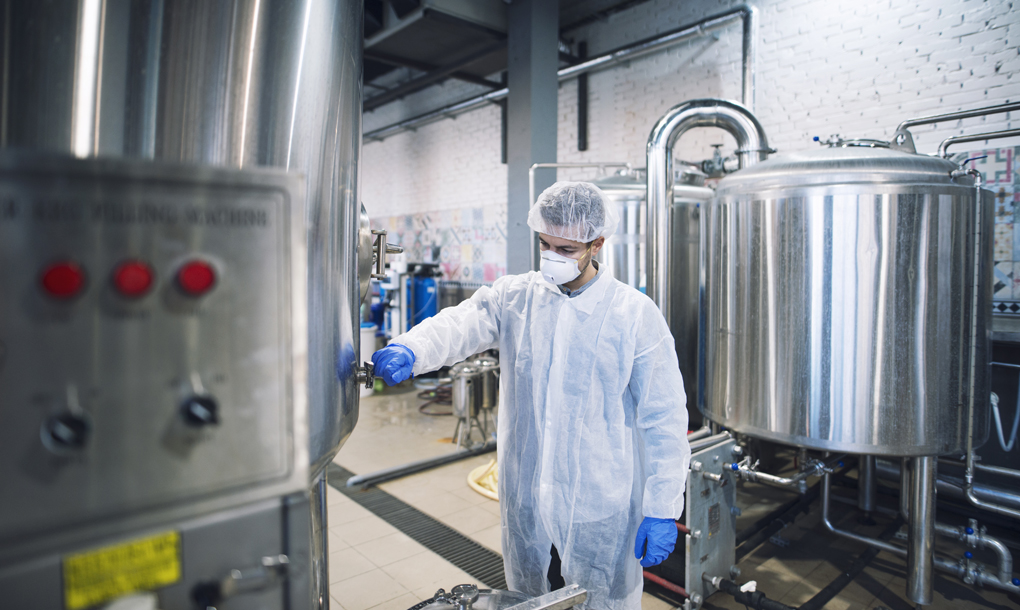07 June
Exploring the Role of Freeze Dryers in the Biotechnology Industry
The realm of biotechnology thrives on innovation, constantly pushing the boundaries of what's possible in medicine, agriculture, and environmental science. At the heart of this progress lies a vital tool: the freeze dryer, also known as a lyophilizer. This remarkable technology is critical in preserving the integrity and functionality of delicate biological materials used in countless biotechnological applications. Let's embark on a deeper dive to explore the many contributions of freeze dryers in biotechnology.
Preserving the Viability of Biological Materials
Many biotechnological applications rely on the utilization of living organisms or their derived components. However, these materials often exhibit a delicate dance with their environment, being highly sensitive to factors like temperature and moisture. Freeze drying offers a solution by employing a gentle drying process that safeguards the viability and functionality of these precious biological resources, ensuring their continued usefulness in a variety of contexts.
- Enzymes : Freeze drying is a cornerstone technique for preserving enzymes, and complex proteins that act as biological catalysts in various biotechnological processes. By removing water while maintaining their intricate structure, freeze-drying ensures their catalytic activity remains intact. This allows them to function efficiently in diverse applications, ranging from biofuel production, where enzymes convert renewable resources into fuels, to bioremediation, where they break down environmental pollutants.
- Probiotics : These live bacteria offer numerous health benefits, promoting gut health, immune function, and even mental well-being. Freeze drying allows for the preservation of probiotics in a stable and viable form, enabling their incorporation into dietary supplements and functional foods. This ensures consumers receive the intended health benefits when these products are consumed.
- Cells and Tissues : Freeze drying plays a vital role in cell and tissue engineering by preserving the viability and functionality of these crucial materials. This facilitates their use in a variety of cutting-edge applications, including regenerative medicine, where damaged tissues are repaired or replaced, and drug discovery, where cells are used to model diseases and test potential therapies.
- Antibodies and Antigens : These essential molecules used in research and diagnostics can be effectively preserved through freeze drying. This ensures their immunological properties remain intact, enabling accurate and reliable research results. Antibodies act as the body's immune system detectives, specifically recognizing and binding to foreign invaders like viruses and bacteria. Antigens, on the other hand, are the "wanted posters" that trigger the immune response. By maintaining the integrity of both, researchers can gain a deeper understanding of the immune system and develop more effective diagnostic tools.
Enabling Diverse Biotechnological Advancements Beyond Preservation
Beyond its prowess in safeguarding the integrity of biological materials, freeze-drying unlocks a range of possibilities within the field of biotechnology, empowering researchers and developers to reach new frontiers:
- Vaccine Development : Freeze drying is a crucial step in the production of many vaccines. It allows for the long-term storage and transportation of these life-saving biological products without compromising their efficacy. Vaccines work by exposing the body to weakened or inactive forms of a virus or bacteria, prompting the immune system to develop a defense mechanism. Freeze drying ensures these weakened or inactive pathogens remain stable, allowing them to effectively "train" the immune system to fight off future infections.
- Gene Banking : Freeze drying plays a vital role in the preservation of genetic material for future use. This facilitates research in areas like genetic engineering, where scientists modify genes to create new products or improve existing ones, and personalized medicine, where treatments are tailored to an individual's unique genetic makeup. By preserving genetic material through freeze-drying, researchers can ensure the availability of valuable genetic resources for generations to come.
- Biopreservation : Freeze drying allows for the long-term storage of biological samples, such as blood cells and tissues, for future research or therapeutic applications. This is particularly valuable in areas like cancer research, where studying preserved tumor samples can lead to the development of more effective treatments.
Optimizing Freeze Drying for Biotech Applications
While freeze drying offers a multitude of advantages, optimizing the process for specific biological materials is crucial for achieving the desired results. Here are some key considerations:
- Understanding the Material : Different biological materials possess unique properties and sensitivities. Tailoring the freeze-drying cycle, including parameters like temperature, pressure, and drying time, is essential to ensure optimal preservation of their viability and functionality.
- Pre-Treatment Considerations : Certain materials may benefit from pre-treatment techniques before freeze drying. This could involve adding specific stabilizing agents or cryoprotectants, substances that protect cells and tissues from freezing damage.
- Post-Drying Storage : Freeze-dried materials require proper storage conditions to maintain their stability and effectiveness. This often involves storing them in a cool, dry environment with minimal light exposure.
Ready to Harness the Power of Freeze Drying in Your Biotech Research?
At Freeze Drying Systems, we understand the unique needs of the biotechnology industry. We offer a comprehensive range of freeze dryers specifically designed for biopharmaceutical and research applications. Our team of experts is dedicated to providing you with the support and resources needed to optimize your freeze-drying processes and achieve successful outcomes.
Contact Freeze Drying Systems today to discuss your specific requirements and explore how our innovative technology can empower your journey in biotechnology. Together, let's unlock the boundless potential this technology holds for the betterment of human health and scientific progress.
